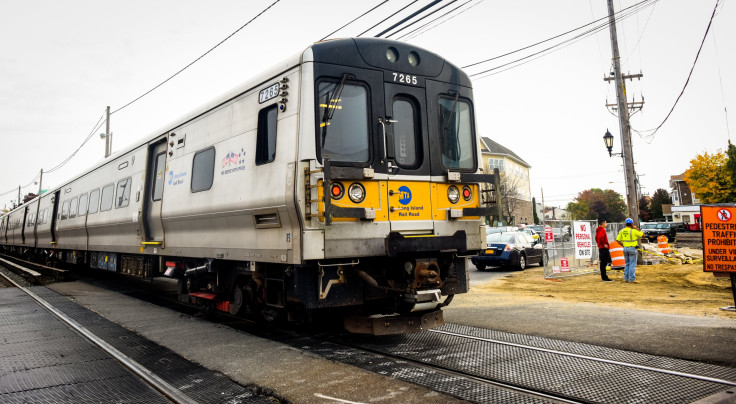LIRR Derailment Cause: Train Crash Blame Is On Speed, Engineer Or Brake Failure, Officials Suggest

The commuter train that derailed and crashed at the height of morning rush hour in New York City on Wednesday was likely the result of fast speeds, the engineer, or both, a local transit official said hours after the accident. While the incident was under investigation to determine how the Long Island Railroad derailment in Brooklyn happened, the head of the LIRR's parent company offered his thoughts on the cause.
"It's primarily the locomotive engineer's responsibility to control the train," Metropolitan Transit Authority Chairman Tom Prendergast said during a press conference with New York Gov. Andrew Cuomo at his side. "There's a signal system that controls it coming in at limited speeds, but when you're getting to the end, it's the locomotive engineer's responsibility."
However, another option could be the malfunctioning of the train's braking system. However, that theory was not probable, an expert on train travel safety told ABC7 New York News.
"(Brake failure) is a possibility, but unlikely," James Sottile told the local news outlet. "It appears he failed to stop the train in time."
A look at the LIRR train accident from the platform shortly after the crash. @ABC7NY pic.twitter.com/qou9aYafT7
— Dray Clark (@DrayClarkTV) January 4, 2017
At least 103 people were injured in Wednesday's derailment and crash at the Atlantic Terminal in downtown Brooklyn. However, there were no deaths and though the most serious injury was reportedly a broken leg.
It was the absence of the so-called Positive Train Control (PTC) technology that ultimately is to blame, Sottile seemed to suggest. Congress passed a law more than a decade ago requiring that railroad companies add to their tracks new technology designed to limit such accidents, but many U.S. railways remain devoid of such technology. The lack of PTC may also have contributed to the fatal derailments in New Jersey in August and an Amtrak train in Philadelphia last year.
LATEST: At least 76 people injured in LIRR commuter train derailment in Brooklyn, NY. pic.twitter.com/WknyojNMRI
— Good Morning America (@GMA) January 4, 2017
"They have not installed electronic capability to stop a train as it approaches a station to override the engineer's capability," Sottile said.
© Copyright IBTimes 2025. All rights reserved.






















